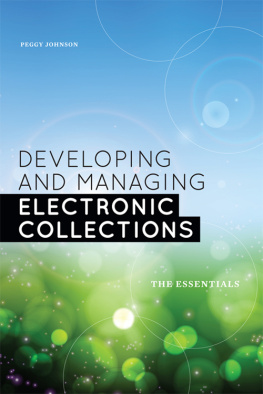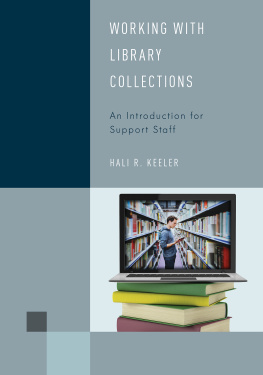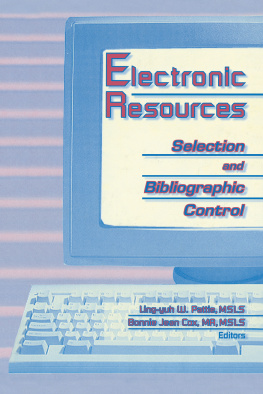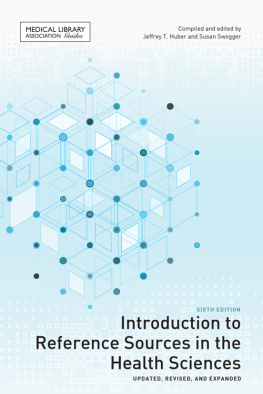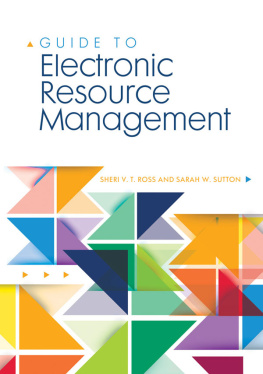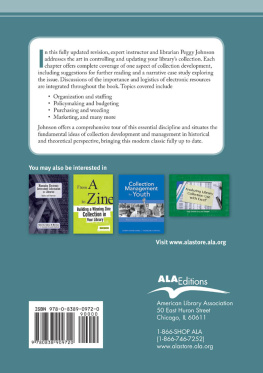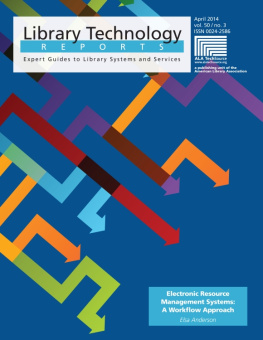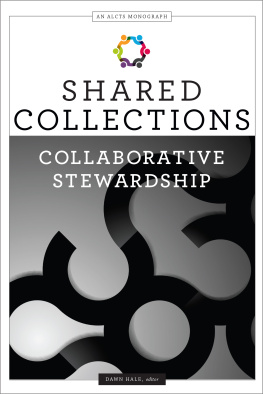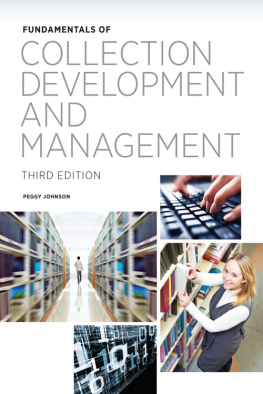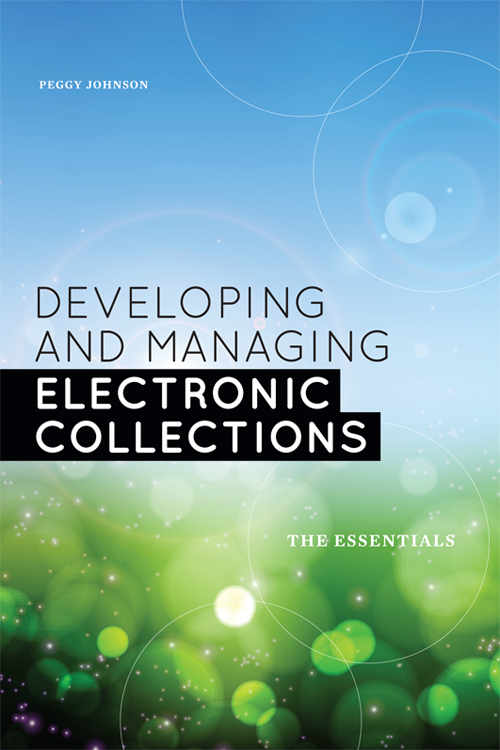
ALA Editions purchases fund advocacy, awareness, and accreditation programs for library professionals worldwide.
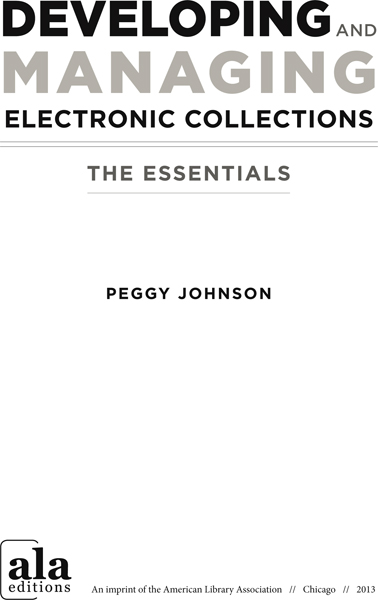
PEGGY JOHNSON is a frequent speaker and trainer on collection development and management. She has published several books, including ALA Editions bestselling Fundamentals of Collection Development and Management, and numerous journal articles. She edited the peer-reviewed journal Library Resources and Technical Services for more than nine years, ending her term in December 2012, and continues to edit Technicalities: Information Forum for the Technical Services Professional. Prior to retiring from the University of Minnesota Libraries, she served as associate university librarian. Peggy is past president of the Association for Library Collections and Technical Services and received the ALCTS Ross Atkinson Lifetime Achievement Award in 2009. She has a Masters from the University of Chicago Graduate Library School and a Masters of Management and Administration from Metropolitan State University.
2013 by the American Library Association. Any claim of copyright is subject to applicable limitations and exceptions, such as rights of fair use and library copying pursuant to Sections 107 and 108 of the U.S. Copyright Act. No copyright is claimed for content in the public domain, such as works of the U.S. government.
Extensive effort has gone into ensuring the reliability of the information in this book; however, the publisher makes no warranty, express or implied, with respect to the material contained herein.
ISBNs: 978-0-8389-1190-7 (paper); 978-0-8389-9615-7 (PDF); 978-8389-9616-4 (ePub); 978-8389-9617-1 (Kindle). For more information on digital formats, visit the ALA Store at alastore.ala.org and select eEditions.
Library of Congress Cataloging-in-Publication Data
Johnson, Peggy, 1948
Developing and managing electronic collections : the essentials / Peggy Johnson.
pages cm
Includes bibliographical references and .
ISBN 978-0-8389-1190-7 (alk. paper)
1. LibrariesSpecial collectionsElectronic information resources.
2. Electronic information resourcesManagement. 3. Libraries and electronic publishingUnited States. I. Title.
Z692.C65J64 2013
025.2'84dc23 2013005038
Cover design by Kimberly Thornton. Cover image Shutterstock, Inc.
Contents
The logical place to begin a book that explores electronic collections is with a shared understanding of what electronic collections means. Many termsvirtual library, electronic or e-library, digital library, and moreare used interchangeably to refer to a library that collects digital resources. For the purposes of this book, electronic collections are the electronic content selected by librarians from a variety of sources for a library, managed by the library, and made available for users. This content may be purchased, leased, or available as free resources. It may be selected title by title or in bundled packages. The emphasis in this book is on developing and managing this type of collection, particularly content accessed via the Internet.
As library collections in all types of libraries increasingly become electronic, librarians are faced with both opportunities and challenges. These include coping with rising costs while meeting increasing user expectations, understanding copyright and fair use in the digital environment, following rapidly changing technologies, negotiating licenses and contracts, and tracking evolving business models. During the process of writing this book, I researched and monitored developments in these areas and consulted with librarians about their practices. I have done my best to incorporate current information while providing practical information that will guide librarians in their work with electronic content, a challenge during such a volatile time.
This book is scoped to be generally applicable to all types of libraries. All books, by their finite nature, are limited in various ways. I have intentionally omitted some digital formats and genres (e.g., textbooks, games, software, locally produced datasets, locally digitized content). Some topics, such as open access, I introduce but do not explore in depth. Resources and tools for locating e-content are not included. Although promoting e-collections and assisting patrons in their use are important responsibilities for libraries, they are not addressed in this book. Information about publishers, vendors, agents, aggregators, and other suppliers was accurate at the time of this writing, but the marketplace is changing rapidly and readers should carefully research options before making decisions. I intend references to individual companies to be exemplars that do not imply endorsement.
Selecting e-content for libraries is the responsibility of various people, who have different titles and differing assignments in their libraries. For convenience, I use selector as the descriptive title for those who select resources to add (either through purchase or subscription) to the collection.
A persistent theme in this book is the multifaceted, nonlinear, and often cross-departmental nature of developing and managing e-collections. Separating interconnected and interdependent topics and associated tasks into logical chapter divisions creates somewhat artificial divisions. Negotiating contracts and licenses is not possible without understanding their nature and components. Selecting e-content effectively depends on understanding selection and acquisition options in the e-content market. So, although each chapter covers a specific topic, it is best understood within the context of the book as a whole.
Each chapter, except offers definitions of terms.
My goal is to offer practical guidance in navigating the complex issues associated with developing and managing electronic collections in libraries of all types and sizes. To that end, chapters explore key issues and decision points and offer advice on best practices for developing and managing these important resources. This book aims to provide an understanding of the context in which electronic collection development and management occur and to offer practical solutions that provide effective, efficient, and timely access to online resources for library users.
Books are not written in isolation, and this one is no exception. Friends and colleagues graciously shared their advice, information, and expertise as I researched and wrote this book. I thank especially Steven Bosch (University of Arizona Libraries), Eric Celeste (independent library technology consultant), Ginny Brodeen (Contemporary Library Consultants), Nadine Ellero (Auburn University), Fariha Grieme (University of Minnesota Libraries), Gary Handman (Moffitt Library, University of California Berkeley), Cindy Hepfer and Susan Davis (University at Buffalo Libraries), Brian Karschnia and John Larson (St. Paul Public Library), David Lesniaski and Heidi Hammond (St. Catherine University Master of Library and Information Science program), Bob Nardini (Coutts), Narda Tafuri (University of Scranton Library), and Michael Zeoli and Hester Campbell (YBP Library Services).
Researching is much different than when I began my writing career, with many resources available online, but interlibrary loan remains an essential library service. My thanks for speedy delivery of the innumerable books and articles I have consulted go to the ILL staff at the University of Minnesota Libraries: Cherie Weston, Melissa Eighmy Brown, Guy Peterson, Emily Riha, and Alice Welch. My dear friend Bonnie MacEwan (Auburn University), who graciously read each chapter, contributed to the clarity and completeness of this book. All errors and omissions are solely my responsibility. I cannot conclude without thanking my eternally patient and supportive husband, Lee, to whom this book is dedicated.
Next page
